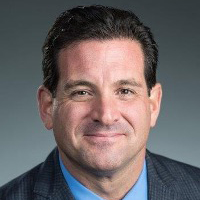If you’re focused on building as much wealth as possible, it can be tempting to stay fully invested, especially when the stock market has historically offered such strong long-term returns and you begin to experience compound gains. However, staying completely invested is risky, and can potentially lead to significant damage to your portfolio, which is why we should always keep a significant amount of cash reserves on hand.
While cash may not be the most exciting part of a portfolio, a substantial reserve can help you manage risk, provide a buffer for unexpected expenses, and give you the flexibility to seize new opportunities when they arise and even be a key piece of your estate planning.
In this article, we’ll explore the role of cash reserves in a balanced portfolio and offer practical guidance on how much to hold based on your personal situation and goals. With the right amount of liquidity, you can support your long-term growth while protecting yourself from life’s uncertainties.
Cash Reserves as a Safety Net
One of the most immediate reasons to keep a portion of your portfolio in cash is to handle life’s inevitable surprises. Emergencies come in all shapes and sizes—according to recent research, roughly 1 in 5 people have had to dip into their emergency savings for unexpected car repairs (21%), home repairs (21%), medical bills (19%), or debt payments (17%). And about 10% have needed extra funds to cover the financial impact of a job loss. While you may currently be in good health, use public transportation, rent an apartment, and be debt-free, it’s unlikely that all these conditions will always remain constant. Furthermore, job security is always unpredictable. We have to count on emergencies eventually occurring.
Why Are People Dipping Into Their Emergency Savings?
https://www.empower.com/the-currency/money/over-1-in-5-americans-have-no-emergency-savings-research
For most people, a good rule of thumb is to maintain 3-6 months of living expenses in cash reserves. But as a CPA with a potentially variable income—perhaps tied to tax season peaks and slower summer months—you may feel more comfortable with a slightly larger reserve. This would help smooth out cash flow during off-peak times, helping you to avoid dipping into your investment accounts.
Avoiding Forced Sales in a Down Market
When it comes to long-term investment success, time in the market–not timing the market–is key. Missing out on only 10 of the best market days can be the difference between a thriving portfolio and an average portfolio. In fact, if you missed 50 of the best days between 2003 and 2022, you would have actually lost money.
The chart above shows how missing the best S&P 500 trading days from 2003 to 2022 reduces returns.
SOURCE: https://www.visualcapitalist.com/chart-timing-the-market/?t
The point here is that you can’t guess when those best market days will occur, so it’s vital to stay invested the entire time. If you’re forced to sell your investments to cover the cost of an emergency, you risk not just missing out on future growth but also selling at an inopportune time, perhaps even losing money on that investment. By having cash readily available, you can wait out market volatility, allowing your investments time to recover rather than locking in losses by selling at a low point.
This becomes especially important as you approach retirement as the sequence of returns—whether you experience market gains or losses early on—can significantly impact your portfolio’s longevity. By keeping cash on hand, you can help protect yourself from having to sell assets in a down market, helping to preserve the long-term value of your portfolio.
Cash Reserves as an “Opportunity Fund”
Cash reserves aren’t just for emergencies—they can also give you the flexibility to take advantage of investment opportunities as they arise. Imagine, for example, that you’re considering investing in a rental property or a new business venture, but market prices are currently high. If an economic downturn leads to lower prices, having cash reserves on hand allows you to make a quick, competitive offer on an undervalued asset.
Having cash available also helps you avoid taking on high-interest debt to seize those opportunities. Rather than scrambling to secure a loan—which may not be available on favorable terms when you need it—you’ll already have funds ready to deploy.
Cash Reserves and Estate Planning
Even upon your passing, cash reserves can come in handy, providing the executor the necessary funds to cover things such as legal fees, funeral costs, and other expenses without having to sell assets that you intended for your heirs. Plus, you may end up owing estate taxes, and even if your estate isn’t worth more than the federal estate exemption limit, many states have their own estate taxes with much lower exemption limits—sometimes as low as $1 million—so even if your estate will be free from federal taxes, you may still end up owing state taxes.
How Much Cash is Enough?
The answer isn’t the same for everyone—it really depends on your life situation. Are you single, or do you have a family to support? Are you living comfortably within your means, or is your budget feeling tight? And where are you in your career? Just starting out, well into the middle years, or getting close to retirement?
If you’re in the earlier stages of your career, having enough cash to cover 3-6 months of living expenses is often a good target. This should give you a buffer for the unexpected without holding back too much that could otherwise be invested to grow over time. Once you have a family or get closer to retirement, though, it’s usually a good idea to keep a larger cash reserve—somewhere around 6-12 months of expenses.
Instead of holding everything in a regular savings account, you might also consider other low-risk, liquid options like money market accounts or Treasury bills, which may offer higher interest rates than savings accounts, helping to further offset the effect inflation will have on your cash savings. That being said, at the time of writing, some savings accounts offer rates above 4%.
In Conclusion
It might be tempting to focus on growth, but having cash on hand to cover expenses and seize on economic opportunities provides all the arguments we need to keep a good amount of cash on hand. The question of how much exactly is the question many need assistance with, especially when it comes to fitting it into your retirement plan.
If you’d like guidance on building cash reserves into your own retirement plan, we’re here to help. Our team specializes in working with CPAs to craft thoughtful retirement strategies, optimize Social Security benefits, and establish reliable income sources for the future.








